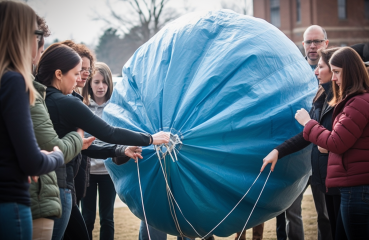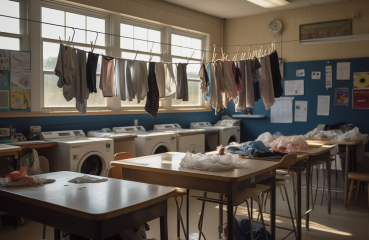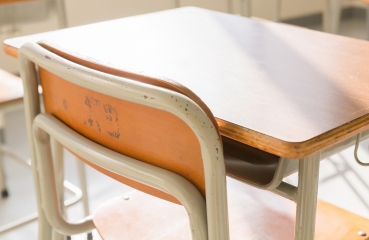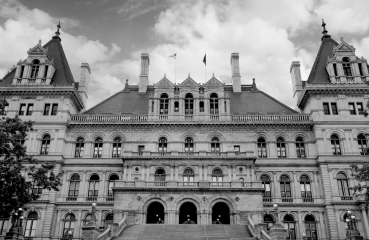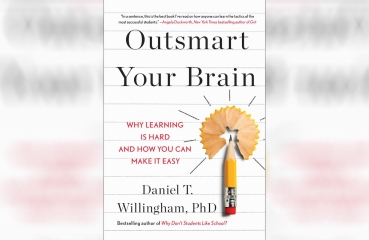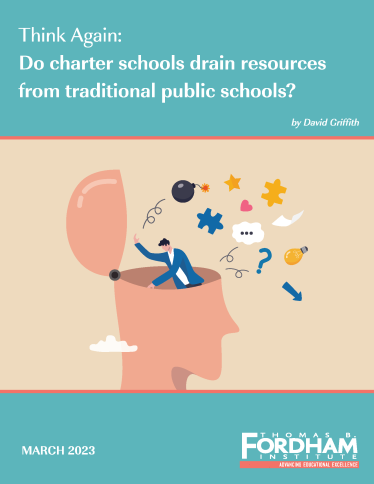Rewrite attendance laws to promote learning, not seat time
Chester E. Finn, Jr.Two depressing developments of the past couple years have given birth to a radical idea: Let’s rethink state “compulsory attendance” laws so that they’re phrased in terms of kids learning rather than years in school. First is evidence that lots of students who need it don’t avail themselves of high-dose tutoring when available. Second is the growing number of districts and schools that are moving to four-day weeks.
The agonizing individualism of progressive education
Daniel BuckPerhaps my favorite moment teaching this year came as my class finished reading Of Mice and Men. In the final moments of the story, one character executes his friend to save him from a far worse fate. It’s sudden and thus shocking. I set them to read this final scene silently. The faster readers finished first. I watched eyes widen and flit faster from word to word.
Secretary Cardona asked states to “raise the bar.” New York responded by lowering it.
Dale ChuThis school year was supposed to mark the beginning of the comeback. Largely free from pandemic-related disruptions and with coffers flush with Uncle Sam’s Covid cash, states could finally turn their attention toward clawing back what students have lost.
High schoolers don’t graduate with the learning habits to succeed in college
Nathaniel GrossmanMuch of my work as a kindergarten teacher was teaching young children how to be students. Even the routine for “circle time” on the carpet required days, if not weeks, of explicit practice. Making eye contact, waiting one’s turn to speak, and ignoring distractions are skills so basic that it’s easy to forget that they don’t come naturally to many kids.
What we're reading this week: March 30, 2023
The Education GadflyA review of existing research suggests that “retention is more likely to succeed in earlier grades and when implemented with instructional support mechanisms tailored towards the educational needs of retained students.” —Brookings Institution
#863: How charter schools affect district resources, with David Griffith and Paul Bruno
On this week’s Education Gadfly Show podcast,
How the “math wars” are different from the “reading wars”
Natalie WexlerDebates over how to teach math echo the conflicts over reading instruction, and some issues are similar. But unlike math, reading—in its full sense—draws on everything a person has been able to learn.
Charter schools make district schools more efficient
David GriffithDistricts that lose students to charter schools can and ultimately will adjust their behavior. And indeed, recent research implies that, while charters marginally reduce districts’ total revenues per pupil, they also make them more efficient. The challenge for policymakers is managing whatever transition costs may be associated with moving to a more choice-based system in a way that is fair to students and taxpayers.
Conservatives’ blunder: Making enemies of public school teachers
Robert PondiscioHere is a list of ideals and values commonly held within a particular group of people in American life. Name the group of people who prize the following things: a belief in personal responsibility and individual merit; a respect for order, rules, and self-discipline; and a personal commitment to vibrant institutions that are critical to civil society.
Yes, high school English can be a bore. No, it’s not Common Core’s fault.
Meredith Coffey, Ph.D.Within a few years of their 2010 rollout, the Common Core State Standards for math and English became a popular scapegoat for a host of perceived ills in K–12 education.
New evidence of weak benefits to student-teacher matching on race
Jeff MurrayOne way education systems have tried to raise the performance of Black and Brown children is by matching students with teachers of the same race and ethnicity.
#862: The education implications of Chicago’s mayoral election, with Natalie Neris and Hal Woods
On this week’s Education Gadfly Show podcast,
States can improve equity and outcomes in gifted education, but too many aren’t trying
Brandon L. WrightEditor’s note: This is an edition of “Advance,” a newsletter from the Thomas B. Fordham Institute written by Brandon Wright, our Editorial Director, and published every other week. Its purpose is to monitor the progress of gifted education in America, including legal and legislative developments, policy and leadership changes, emerging research, grassroots efforts, and more.
Think Again: Do charter schools drain resources from traditional public schools?
David GriffithOpponents of public charter schools claim that they drain resources from traditional public schools. This brief argues that this assertion misses lesser-known realities and ignores obvious truths.
Keep the tests, but reform the test prep
Emily FreitagWhen I started Instruction Partners and began working deeply and regularly with multiple school systems, I was surprised by some patterns. The same motivational quotes were in almost every school hallway. Many teachers' lounges had the same air freshener. There was a similar tension between certain departments in almost every district.
We know student effort matters, so let’s start acting like it
Eva MoskowitzStudent effort is the secret sauce at Success Academy charter schools, says their founder and CEO, and they teach and celebrate it religiously. Indeed, after seventeen years of educating tens of thousands of students, careful analysis of homework, classwork, and assessment data has taught the Success Academy team that a large proportion of errors, up to 70 percent, don’t result from not knowing or understanding the content, but from a lack of care and attention to detail.
